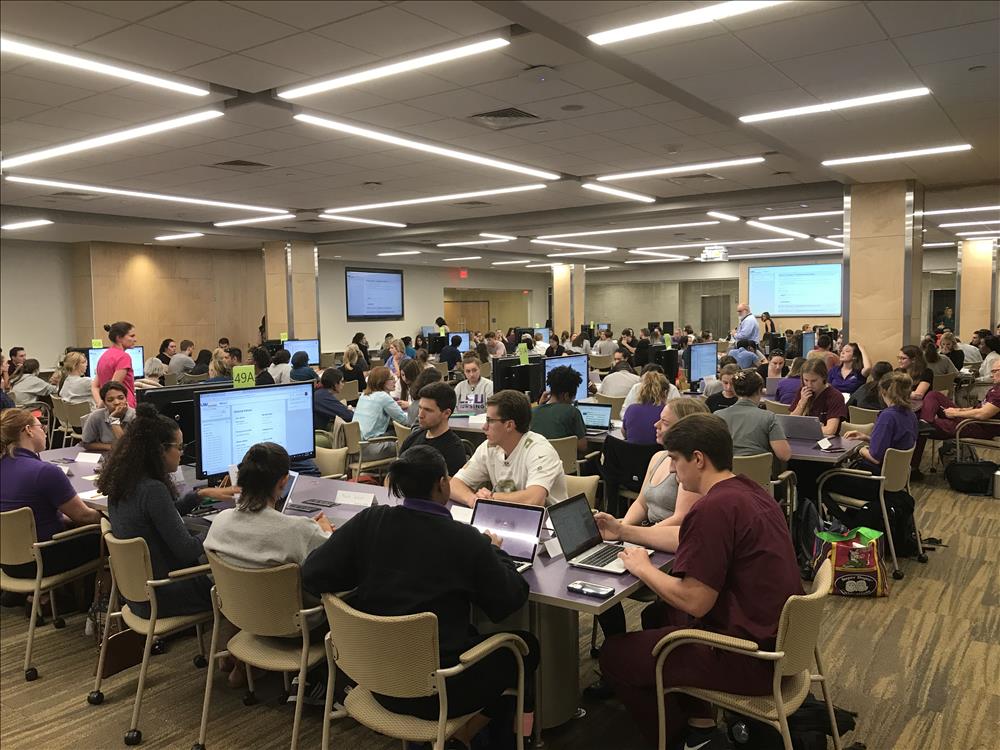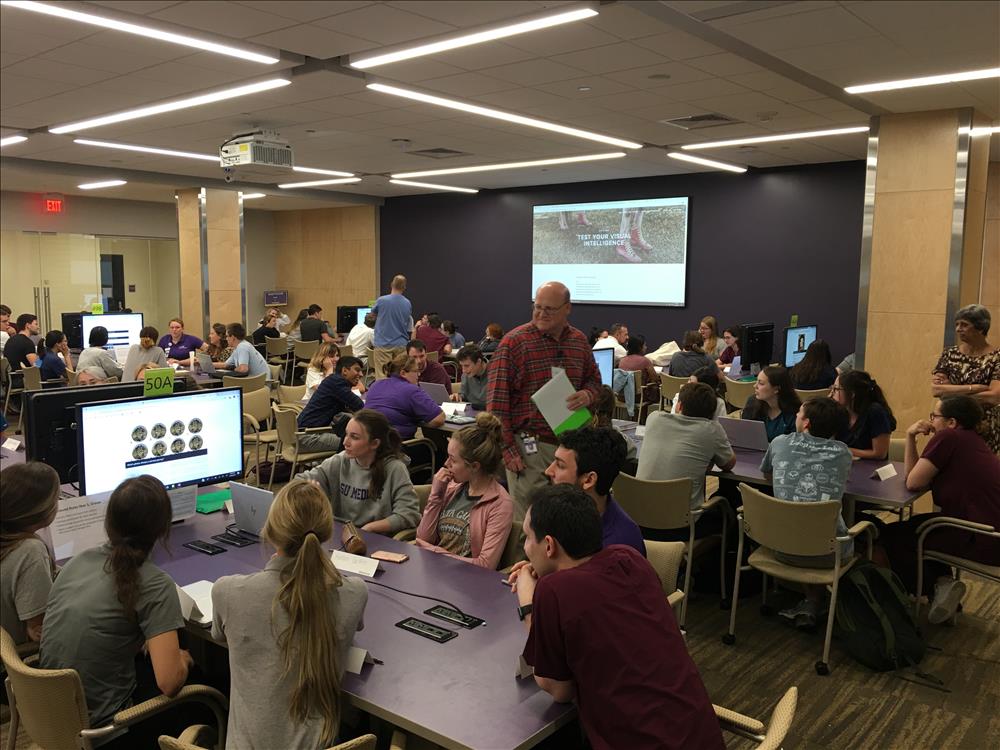TEAM UP™ Overview
TEAM UP COMPASSION, COMMUNICATION, COLLABORATION® (TEAM UP™), a two-year longitudinal interprofessional education experience integrated within the curriculum of all six LSU Health Sciences Center Schools for first and second-year students.
The focus of TEAM UP™ Year 1 is for students to:
- form an understanding of other health professions
- recognize the benefits of an interprofessional health team
- develop an interprofessional collaborative team
First-year students apply their skills through the Health Partner Project. Each student team engages with an individual in the community to learn about the Health Partner's healthcare lived experiences and their health goals. Through active listening and communicating across all team members, students provide a community resource list to the Health Partner. The resource list is related to opportunities the Health Partner may consider as he/she works towards reaching health goals.
The focus of TEAM UP™ Year 2 is for students to:
- enhance knowledge of other health professions' roles and responsibilities
- strengthen and improve behaviors to enhance interprofessional collaborative team performance
- incorporate characteristics of highly effective teams
Second-year students apply their skills through an Interprofessional Collaborative Practic Project. Student teams are provided a case where improvement in interprofessional collaborative practice is needed. Teams use a quality improvement approach to identify the root cause(s), research the literature for evidence-based practices to improve collaboration, and suggest a training implementation program for the team noted in the provided case.
TEAM UP™ History
2017 - TEAM UP™ was established in September 2017. The inaugural student cohort consisted of first year students from 5 Schools (Allied Health, Dentistry, Medicine, Nursing and Public Health). There were approximately 700 first-year students from nineteen academic health programs that convened in sixty-five teams on a monthly basis on a Monday from 4:00-6:00pm from September to April (excluding December) across both downtown and dental school campuses.
2018 - In September 2018, TEAM UP™ was inclusive of all six Schools, with the addition of Graduate Studies.
2019 - In September 2019, the TEAM UP™ experience was modified to include 60 student teams, and 6 sessions for Year 1 and 6 sessions for Year 2. TEAM UP™ included a rotating Monday afternoon schedule for both first and second year students in the Team-Based Learning classroom.
2023 - In August 2023, the experience was modified to include 7 sessions for both Year 1 and Year 2.
Our IPE curriculum supports the following national initiatives:
- National Steering Committee for Patient Safety. Safer Together: A National Action Plan to Advance Patient Safety. Boston, Massachusetts: Institute for Healthcare Improvement; 2020. (www.ihi.org/SafetyActionPlan) - Recommendation 15
- Clinical Prevention and Population Health Curriculum Framework. Association for Prevention Teaching and Research. February 2020. (www.teachpopulationhealth.org/) - Components 1, 2 and 3


TEAM UP™ Outcomes
SPICE-R2
Many institutions use attitudinal and perception surveys to measure interprofessional education (IPE) outcomes. Although outcomes from these surveys cannot predict behaviors, educators use the Theory of Planned Behavior1 to support the use of these validated instruments. If the decision to change behavior is directly related to a change in attitudes and beliefs,1 using instruments, such as the SPICE-R22 throughout an academic journey provides insight to IPE curricula impact.
As a requirement of the curriculum, students complete the Student Perceptions of Interprofessional Clinical Education-Revised instrument, version 2 (SPICE-R2) after engaging in both Year 1 and 2. The SPICE-R2 includes ten items across three factors: Interprofessional Teamwork and Team-based Practice (4 items), Roles/Responsibilities for Collaborative Practice (3 items), and Patient Outcomes from Collaborative Practice (3 items). Students rate their level of agreement using the following 5-point Likert-type scale: 1=strongly disagree, 2=disagree, 3=neutral, 4=agree, 5=strongly agree. The bar graph below provides an overview of the change in total SPICE-R2 score of all students participating since 2017.
